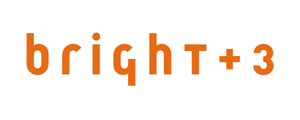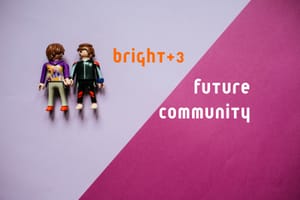👋 Hello and welcome Joey, Stephanie, Elise, William-Jose, Jarret, Dalton and Jared.
Greetings Jessica, Alexa, Corinne, Geoffrey, Natalie, Larisa and Katherine.
Thanks for joining us Ben, Eleanor, Brenna, and Jakob.
Click reply if you have questions, suggestions or just want to say hello.
Do we really need to keep telling people this is all on them?
All of us are living in a time of risk. Climate change increases the risk of poor air quality or even loss of a home, job, or plans due to wildfire, floods, or extreme heat. Our economy and politics are wildly unsettled (to put it kindly). As the risk of job loss rises so does the risk to our health insurance. We're exposed to the risk ranging from pandemics to higher food prices to illness as food safety programs end.
A not so charming facet of American life is that we face risk alone. That's even these largely systemic risks. Insurance is on the individual. We're told to sort out our response to heat, fire and floods on our own. Buy a mask. Buy an air purifier. Deal with home insurance on your own.
Much of the advocacy communications, fundraising, and policy I'm involved with deals with the issues above. It seems reasonable to me to say that our activists, members, supporters, and donors are burdened with a lot of individual risk and related concern for children, parents, jobs, homes and more.
What if our communications is compounding feelings of isolation and individualism at a time when we need to build community and strengthen local networks.
The way we communicate with supporters tends to be very individualistic. Our emails remind people that "You can create change" and this is up to you. We tell them that your donation will do X, your voice matters, we need you to contact your Representative.
This is all true. And we talk like this to inspire action and motivate people to donate.
But perhaps people know better. Perhaps people want - and need - to know others around them who can help with this problem. Perhaps people see that contacting a US Senator right now is not going to help pass a good bill.
Reliable solutions that will help families survive climate disasters and job losses can't be left to individuals who, in the current system, are already burdened with so much risk to their home, health, finances, and future.
What's the alternative? This is especially important for organizations working on national or global policy. Some thoughts:
- Chances are good you're leaning into state and local advocacy. Show people the good organizations and work happening near them. Introduce organizations and, better yet, show off real partnerships.
- Identify and work with local news organizations and not just the last remaining legacy newspaper (if there is one). Chances are good there are scrappy startup news organizations covering cities, small towns, suburbs, even neighborhoods.
- Show people how many other people on your list, in your audience, among your donors are in their state or community. Offer social proof.
- Explain, show, and talk about systems. Then give them agency to change them where it matters most. Give people hooks into community, local and state systems. National agriculture policy, corporate farming, and the creation of a handful of large grocery companies have far more to do with food prices, access, and public health than individual food choices. But it's still local decision making that controls the development and zoning that puts a grocer in a neighborhood. Help people understand the system while also engaging with others on the ground to create tangible change.
Bright Ideas
A few good reads...
- Institute for Nonprofit News shared a case study looking at how Bridge Michigan uses newsletters to build owned audiences. These insights are gold. They identified three key factors. Nonprofits doing any content work (Do you post blogs? do you post social media? Do you send emails to anyone? Hell yes you do!) could stand to sit with the first of these: A robust system for embedding audience data into the editorial process.
- The Future of SEO for News Publishers in 2025: Crafting the Perfect Recipe for the Best Summer Ice Cream by Clara Soteras is the most thorough look at the current relationship between SEO and content right now.
- Liberal, left, and progressive organizations and the broader community do a poor job supporting the careers of their young staff. I don't think Zack Beauchamp's piece in Vox, How conservatives help their young thinkers - and why liberals don't, is the full story. It mostly concerns think tanks and ideological projects (still important). But there's little organized mentorship, training, and career support for people who want to build a career in conservation, education advocacy, or community organizing, for example.
- Did (does?) our obsession with scale prevent us from producing solutions that actually work or truly help people? Sure, we should create vaccines at scale? Remember when we did that and saved, I don't know, millions of American lives? But not everything needs to scale. Read Do things that don't scale, and then don't scale by Adam Derewecki.
- A couple must reads for campaigners and community builders now: 5 things Free DC is teaching us from Choose Democracy. Via Julia Roig. See also Free DC: Inside the women-founded movement opposing Trump’s militarized takeover by Amanda Becker for The 19th.
Bonus Free DC chants from a Washington Spirit home game ⤵️
Future Community Jobs
Here are some recent roles. I think we're spotting an uptick in job posts (though NOT in the news and audience area - sorry). Some of that is the time of year and how budgets are built. Is this a trend? No idea.
Check out the full job list here. Want to post a job? Send an email.
🗞️ Audience, content, journalism and news roles
- Director, Off-Platform Reach : CNN [Atlanta / New York City / Washington, DC]
- Director/Senior Director of Publishers : Stacker [Remote]
- Deputy Editor/Producer, Podcasts and Deputy Editor/Producer, Video Podcasts : The Atlantic [New York City / Washington, DC]
🗣️ Communications
- Communications Associate : Greenlight America [Remote]
- Senior Director of Communications and Engagement, Bloomberg Center for Cities : Harvard University [Cambridge, MA]
- External Communications Director : ActBlue [Remote in the US]
- Director of Multimedia Strategy : J Street [Washington, DC]
- Communications and Marketing Director : Heal the Bay [Los Angeles]
- Senior Communications Associate : Policing Project [New York City preferred / Remote]
- Director of Communications : Central Valley Community Foundation [Fresno, CA]
- Senior Manager, Communications and Engagement : Waverley Street Foundation [San Francisco]
- Senior Communications Manager : Energy Outreach Colorado [Denver / Remote in Colorado]
⚡ Nonprofit Roles
- Associate Vice President of Community, Justice, and Impact and Director of Community, Justice, and Impact : Earthjustice [Remote in the US]
- Chief Operating Officer : GLSEN [Remote / New York City preferred]
- Senior Partnership Associate : Greenlight America [Remote]
- Programme Lead - Safety of Journalists : Free Press Unlimited [Amsterdam]
- Digital Manager : Civic Nation [Remote]
- Digital Manager for Organizing and Communications : TechTonic Justice [Remote / US South preferred]
- Power Building Director : Michigan United [Remote in Michigan]
- Program Manager : Women's Donor Network [Remote in the US]
- Executive Director : GreenInfo Network [Oakland]
- VP of Growth and Revenue : Dream.org [Oakland / Washington, DC]
- Director, Rutgers Democracy Lab : Rutgers University [New Brunswick, NJ]
- Office Director, North America Office : Climate Analytics [New York City]
- Director of Programs : Community Justice [Washington, DC preferred / Remote in the US]
- CEO : Social Venture Partners, Denver [Denver]
- Coalition Manager, Gun Owners for Safety : GIFFORDS [Washington, DC preferred / Remote in the US]
- Senior Director, Marketing and Engagement - Ranger Rick Brands : National Wildlife Federation [Reston, VA / Remote]
- Innovation Lab Director : Action for the Climate Emergency [Remote]
- Finance Director : Participatory Budgeting Project [Remote]
Over 1,000 amazing people read Future Community. I know a lot of them personally.
Some are hiring.
Many are looking for a role.
Reach out if you want help finding or filling a role.
I have some ideas for you.
💰 Fundraising and Development
- Development Director : Colorado Fiscal Institute [Denver]
- Senior Vice President and Chief Philanthropy Officer : Colorado Symphony Association [Denver]
- Associate Director, Planned Giving : American Rivers [Remote]
💸 Foundations and Philanthropy
- Director, Community Impact Operations : Knight Foundation [Miami]
- Director, Advocacy and Strategic Communications, Energy : Rockefeller Foundation [New York City]
- Senior Associate, Learning : Rockefeller Foundation [New York City]
- Grantmaking Operations Manager : Grassroots International [Boston / Remote in the US]
- Manager, Information Technology : Waverley Street Foundation [San Francisco]
- Project Director, Digital Innovation and Strategic Initiatives : The New York Community Trust [New York City]
💻 Agencies, politics, products, projects & more
- VP of Engineering : Scale to Win [Remote]
- Deputy Chief of Staff : Orchestra [New York City]
- Senior SEO Manager : Alley [Remote]
- Lead Product Designer : Change.org [Remote in the US, Canada or Mexico]
Future Community is a product of Ted Fickes and Bright+3. Reply or visit Bright+3 to get in touch and learn more about our work.

